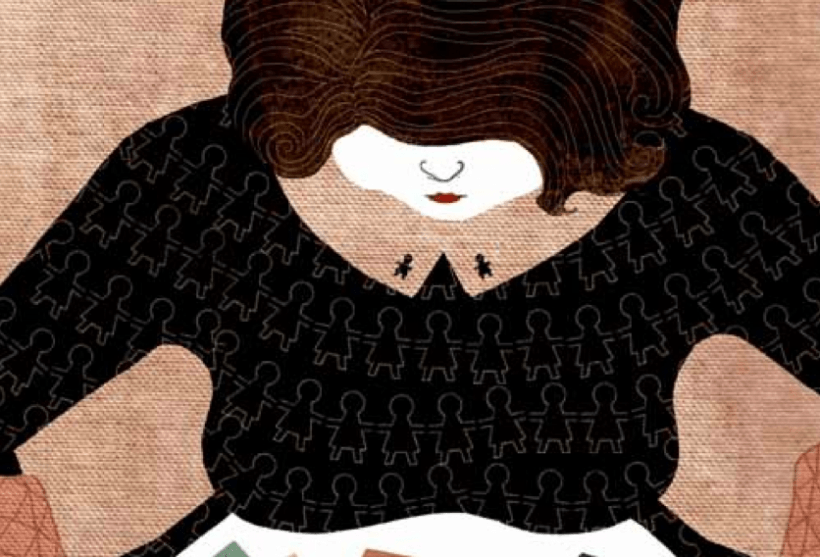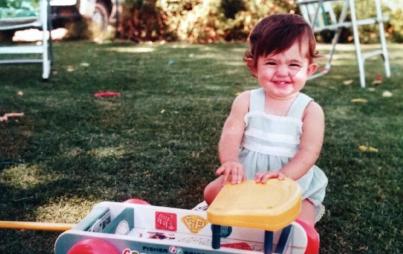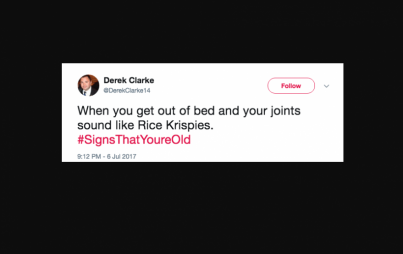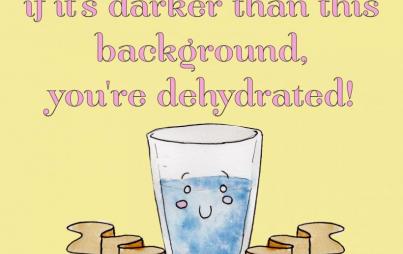
In my dream, I walk alone on a midnight street that spins below my feet. I shut my eyes and blot out the moon that hangs high over the colorful gables. When I open them again, the colors have been washed away, and I stare at a gray winter landscape. Sylvia Plath suddenly appears at my side. We are silent, she and I, as we walk the gray street. I notice her softly curled hair and narrow chin. Her lips are luminous, contrasting with the colorless world around us, a circle of red that draws me to her.
I want to ask her why she’s here, why we are walking through the streets, but I’m afraid that she’ll disappear, that I’ll lose this time with her. I know that she is dead, that she is visiting me from the other side. This doesn’t frighten me. The street fans out in a slow arc to the right and the houses begin to gain color: a splash of pink on a windowsill, a swath of blue on a door. Soon the neighborhood is awash in color and the lawns sprout green.
She was ten when my mother was born and wrote poetry, like my mother does now; twice she took too many pills and left her children without a mother. I wonder, does Sylvia visit her children in their dreams?
She shows me her hands, which are covered in blood, red like the luminous color of her lips, with a hole in the center of her palms. “I carried the cross,” she says. Her voice is smooth, melodious, and I am enchanted by her words, which spring from metaphor.

intellectual. She holds the key to the brownstone in her hands. Black, gilded numbers hang from the brick: As she fits the key into the lock, the moonlight reflects on the metal mail slot, and I am aware that the moon has accompanied us the entire journey.
I walk through the door and look back. Behind me, Sylvia is gone. Was she ever really there? I turn back to enter the shadowy house. A man is sitting in the library, a pouty look on his face, his angular nose casting shadows. His glasses are perfect black O’s, like the shape of Sylvia’s red mouth. “So, you’ve come here to learn,” he says in a thick Irish brogue. Wavy white hair perfectly crests above his head, like an ocean wave receding from the shore.
“I don’t know why I’m here,” I answer honestly.
“Quite right, quite right,” he chuckles and then says, “Whatever you do, don’t take the pills.” And he holds out his hand, a thin slice of moonlight illuminating the pills in his palm.

I walk to the window in the library and look out into the streets, which are coming alive. “Where are we?” I ask the man behind me. But when I turn to hear his answer, I see that he is gone. A quill pen is lying on neatly penned pages that cover the desk. I see his signature on an old parcel post label; it is barely legible, but I make out the name: WB Yeats. Turning back to the window, I see people spilling out of their brownstones, briefcases and bags in their hands. A violet sky heralds the early morning. I realize that I’ve been up all night and I go in search of a bed.
When I wake, a sweet smell surrounds me. I follow the scent to the kitchen. Sylvia is kneeling before a stovev. The sweetness hangs like magnolia blossoms heavy with bloom. When she turns her face toward me, I see dark circles that ring her eyes; her cheekbones are gaunt. Her lips have been drained of their color. A tap root is clutched in her right hand.
Before I can speak, I notice that the walls have turned to glass, that women fill the streets outside the brownstone. “Look,” Sylvia says. “Look and understand.” The women walk in packs, some with white banners cast across their chests with the words “Right to Vote;” some with red letters sewn to their linen dresses; some without clothes, hiding their breasts with one hand, fingers spread wide and hiding their pubic hair with the other hand; others walk fully dressed, rifles at their side.
They continue on and I see that one walks alone, swathed all in black, shiny dark eyes peering at me from beneath a heavy burqa. I turn back to Sylvia, who has taken on an ethereal glow; I fight the urge to grab her, to hold her down, to keep her from floating into the morning sky. “Look again,” she says in a throaty, tired voice. Turning back, I see women walking in straightjackets, their mouths cast open and no sounds escaping. I see pregnant women with their bellies bare, women with their hair cut short, and women with their hair worn past their waists.
Suddenly I am with them on the street, walking among them; I have no idea how I have gotten here. I feel their elbows, their warm breaths; I hear their 
I nod in understanding. “Now I break up in pieces that fly about......” Her voice fades away and she is no longer standing beside me. The women disperse in different directions and I am alone on the street, shivering with cold; only a few people still mill about on the sidewalks. I turn back, to find Sylvia again, and realize that I’d never left, that I am standing in front of the black door with 23 Fitzroy emblazoned in black gilded characters beside it.
I turn the handle and walk back into the brownstone, my footsteps echoing on the wood floor. At first I think the place is empty, deserted, but when I reach the kitchen, I see Sylvia still beside the oven, resting on her knees. Pills lie in the palm of her outstretched hand. “Here,” she says, “Take these. We all do.” I shake my head no and she smiles, a radiant, full smile that lights up the room. A pink apron covers her gray, fitted dress. Her glossy hair is cut short, and lies curled against her neck. She motions for me to join her on the floor. She hands me a pink apron and a thick, cushiony oven mitt. I tie the apron around my waist and slide my right hand into the warm mitt. She nods toward the oven, and I open the door. The sweet smell of gas wafts through the room. She lays her head on the floor and curls into a ball, her eyes fluttering closed.
“Take them,” she says. I look into the oven and realize that it is filled with books. With my mittened hand, I pull the hot rack toward me. Book after book falls into my waiting hands. Books with names like Jane Austen and Charlotte Bronte and George Eliot and George Sands and Virginia Woolf and Gloria Steinam and Alice Walker and Sylvia Plath. They fall like a bouquet of flowers into my lap.
This story by Sheryl Louise Rivett first appeared in the Quail Bell Anthology, Issue 5, spring/summer 2014.
Illustrations by Kristen Rebelo







